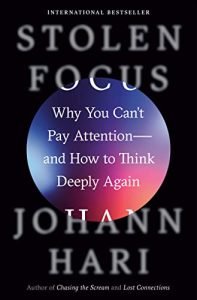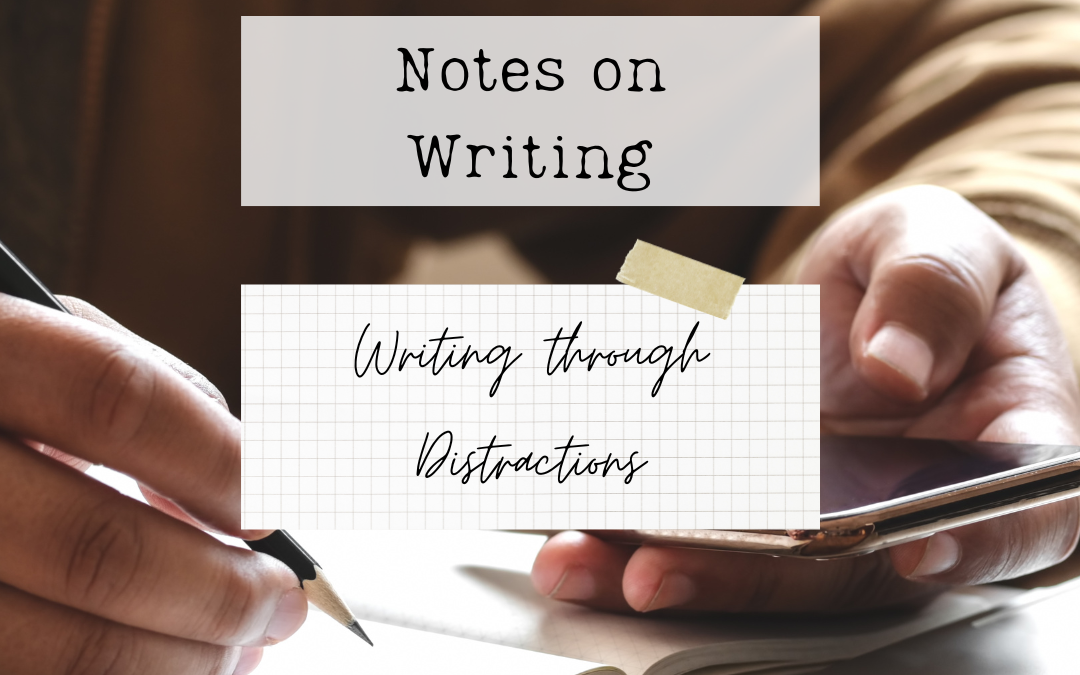Writing Through Distractions
This week has been such a post new year, post-covid blur I actually missed my weekly Tuesday post but hey, better late than never.
So, how’s your writing going?
Despite my best intentions I haven’t been managing to get words on the page every day. A combination of covid recovery, a few days away, belated birthday celebrations and family members being on holidays stalled my new schedule before it even started.
So, what do we do when writing plans go awry? It’s tempting to throw our hands up in the air and call it quits. What’s the point of scheduling anything if there’s going to be constant interruptions? While that’s true to some extent, walking away or indefinitely delaying our plans isn’t going to allow us to achieve our goals. It’s so easy to put things off over and over again. Like water cupped in our hands time slips away and before we know it we’re staring at that same blank screen we stared at a month ago, only now we’re feeling totally deflated and defeated, berating ourselves for our lack of discipline.
What's the alternative? Essentially, it’s all about being realistic about the time we have available. If family demands mean you don’t have a whole morning to write, look for pockets of time where you might be able to get down a paragraph or two, or maybe a couple of hundred words. I’ve done that a few times this week and while the results haven’t been mind blowing the new words have at least moved the story forward or given me a new insight into my characters. A sentence or two of description, a few thoughts from the protagonist or a few lines of dialogue keep the story simmering on your mind’s back-burner, making it easier to get back into the story when you do have more time.It's certainly required discipline to get my butt in the seat, even to do a small amount, but the looming end-of-the-month deadline has been enough to push me to overcome my procrastination/fear and forced me to produce a few new pages.
I’m also listening to an audio book called Stolen Focus: Why You Can’t Pay Attention by Johann Hari. It’s all about the constant distractions we live with and the way our minds become so fragmented we can’t concentrate on any one thing for a decent length of time.

As a chronic multi-tasker, it’s definitely giving me food for thought. Hari’s research and tips on achieving a flow state have been particularly useful this week as I ease myself back into a regular writing practice. This is how I’ve applied them to my writing:
Have a goal – setting a word count each time I’ve sat down to write
Make sure the task is meaningful – having an external deadline and writing a story about something I’m interested in
Work at the edge of your abilities but not beyond them – tricky when you’re drafting and trying not to give in to perfectionism but I’m using the fact that I’ve never written a novella before as a challenge
I’m also following another important piece of advice from the book: focus only on the task at hand and avoid other distractions. For me this means not looking at my phone or using the internet (other than research) during the writing session. The phone part has been especially difficult. Each time I’ve been stuck on what to write the temptation to pick up my phone and scroll has been overwhelming. I’ve even had it in my hand a few times but then that queasy feeling in the pit of my stomach has reminded me what I’m supposed to be doing and I’ve flipped the phone over and put it down. The solution of course is to not have it in the same room when I’m writing and that’s what I’ll be doing moving forward. Even the thought of not being immediately contactable makes me jittery but that’s just something I’ll have to train myself out of if I’m aiming for peak productivity. And a 30K word count!
So, that’s where I’m at this week with my writing. I’m now in the second half of the novella, acutely aware of the lack of cohesiveness in the story but reminding myself it’s a draft and everything can be improved in the revision. For now the important thing is to get it finished, so this week it’s all about words on the page.
How’s your new year writing going? And how do you go about avoiding distractions?

